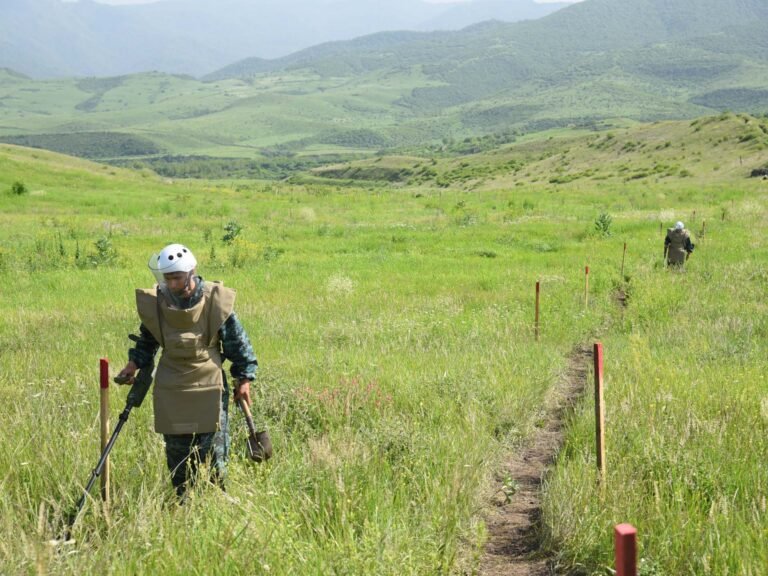Armenia and Azerbaijan’s leaders met in the UAE last month, but no breakthrough in their decades-long conflict was reached.
United States President Donald Trump will host the leaders of Armenia and Azerbaijan for peace talks at the White House, a US official said.
The official told the Reuters news agency on Tuesday that there is a possibility a framework for a peace agreement could be announced at Friday’s meeting in Washington, DC.
The leaders of Armenia and Azerbaijan met in Abu Dhabi, in the United Arab Emirates, for peace talks last month, but no breakthrough in the decades-old conflict was announced.
[Al Jazeera]
The two South Caucasus countries have been in conflict with each other since the late 1980s, when Nagorno-Karabakh broke away from Azerbaijan with support from Armenia.
The region, which was claimed by both Azerbaijan and Armenia after the fall of the Russian Empire in 1917, had a mostly ethnic Armenian population at the time.
Azerbaijan recaptured Nagorno-Karabakh in September 2023, prompting almost all of the territory’s 100,000 Armenians to flee to Armenia.
Armenia has accused Azerbaijan of “erasing all traces” of the presence of ethnic Armenians in the contested territory, in a case before the International Court of Justice (ICJ).
The case stems from the 2020 war over Nagorno-Karabakh, which left more than 6,600 people dead, one of three full-scale wars that the two countries have fought over the region.
The United Nations’s top court has ordered Azerbaijan to allow ethnic Armenians who fled Nagorno-Karabakh to return. Azerbaijan says it is committed to ensuring all residents’ safety and security, regardless of national or ethnic origin, and that it has not forced ethnic Armenians, who are mostly Christian, to leave the Karabakh region.
Azerbaijan, whose inhabitants are mostly Muslim, links its historical identity to the territory, too, and has accused the Armenians of driving out Azeris who lived near the region in the 1990s.
The meeting in Abu Dhabi last month between Armenian Prime Minister Nikol Pashinyan and Azerbaijani President Ilham Aliyev came after the two countries finalised a draft peace deal in March.
The two leaders “agreed to continue bilateral negotiations and confidence-building measures between the two countries”, but no more concrete steps were outlined in the final statement from the talks.
Ceasefire violations along the heavily militarised 1,000km (620-mile) shared Armenia-Azerbaijan border surged soon after the draft deal was announced in March, but later diminished.
